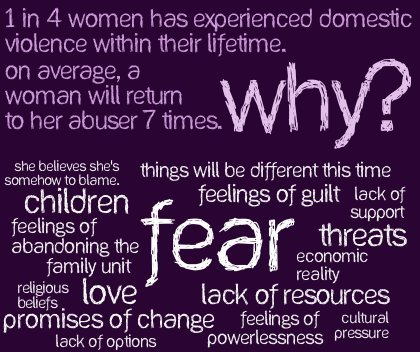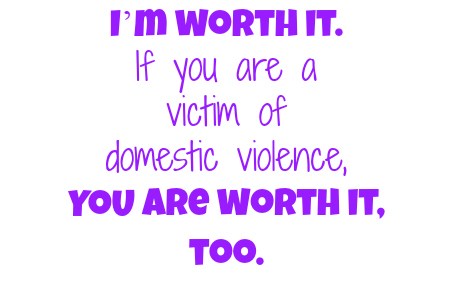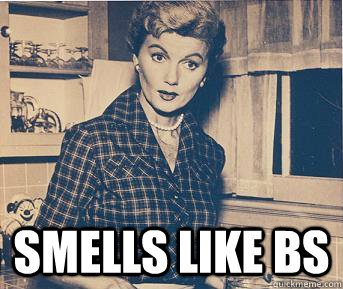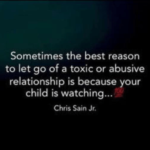
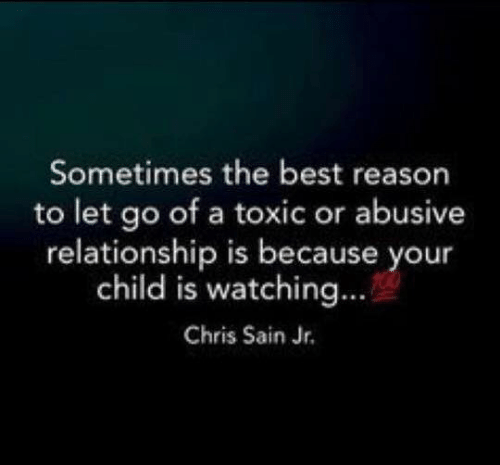
It seems appropriate that after having not been able to write a word in over a year, I’m sitting here at 2:37 a.m. trying to put thoughts on paper. It’s not that I haven’t wanted to write; indeed, the opposite. I’ve just been in a bad place and there haven’t been good words.
This is about domestic violence. Dysfunction. The cycle of abuse. Mostly, it’s a warning that when you think it’s over, it’s not over. If you know someone in this situation, if you’re helping someone in this situation or, if you’re in this situation (bless your heart), read on.
“Has he ever trapped you in a room and not let you out? Has he ever raised a fist as if he were going to hit you? Has he ever thrown an object that hit you or nearly did? Has he ever shoved, poked, or grabbed you? Has he ever threatened to hurt you? If the answer to any of these questions is yes, then we can stop wondering whether he’ll ever be violent; he already has been.” ~ Lundy Bancroft
There is nothing I love more in this world than my children. Not my husband. Not my siblings. Not my dogs. Not even my grandchildren, although they’re pretty damn close. My children…they came out of my body, people. That’s a tough act to compete with. When they are hurt or in peril, it is a genuine effort to not go Rambo on anyone or anything that is causing it.
“Hello, is this Mrs. Mansell? This is Sgt. Wells with the Stone County Sheriff’s Department. I’m here with your daughter, and we need to get her and the kids out of the house for their safety right now. Can they come there?”
I asked to speak to her, because I just wanted to know she was ok, but I didn’t recognize the voice on the phone and I couldn’t make out what she was saying. The only recognizable words? “I’m sorry, Mom.” *Note: There’s a reason the officer makes the call.
That was a couple years ago. It wasn’t the first call. It wouldn’t be the last. An hour later, when we’re hustling kids into the house, cold and wet from driving 45 minutes in the rain in a car with windows that had been busted out with a metal pipe, shaking out the blankets they were wrapped up in as more broken glass falls out, I am certain this would be the final straw. She couldn’t go back after this.
I was wrong. She could, and she did. It’s a cycle, you know. So back into the maelstrom we all went. I won’t bore you with the details.
Then it actually happened. About 10 months ago, she made the decision to leave. There was finally a straw that broke the camel’s back. A catalyst. She was going to actually end her participation in the cycle. Exit the situation. A cause for celebration? Hell to the yes!
I didn’t know that decision was the beginning of a Fresh Hell.
My highly intelligent, uber responsible, capable daughter is devastated. She is terrified of decisions. Her confidence is stuck at the bottom of some dark hole. She has aged 10 years in 10 months.
My tween grandson has looked me straight in the eye and said: “Well, Dad warned her what he was going to do if she tried to walk out of the house. It’s her fault. She should listen.” Sweet Jesus, is this real?
I’m ten months in and if my daughter hasn’t sent a text or Snap Chat in 3 hours, I am seized with fear. I find the reality of restraining orders laughable.
Counseling on a scale that I had never imagined is now as normal as taking a shower in the morning. Endless counseling. Individual counseling. Family counseling. Counseling with her and each child alone. What is most amazing? The counselors are unfazed by what these children have witnessed, what my daughter has endured. They see it all day every day. Business as usual.
“The boys had always been her reason to stay, but now for the first time they were her reason to leave. She’d allowed violence to become a normal part of their life.” ~ Liane Moriarty, Big Little Lies
Endless legal wrangling. Files and forms and statements and subpoenas and records. Reams of them. Anxiously awaiting court dates just to learn there is going to be yet another continuance. The judicial system is equally unfazed; probation violations, violating restraining orders, wildly inappropriate interactions with the children….happens all the time.
I could now write a thesis on how to handle badmouthing. “My Dad says you’re not allowed to tell us what to do.” “My Dad says you hate him because he’s not rich.” “My Dad says this whole side of the family is nothing but douchebags.” “My Dad says we’re going to go live with him.” “My Dad says Mom’s new apartment complex is full of drug addicts and we’re not safe there.”
I was so euphoric when she chose to leave. Giddy. Relieved. Thrilled. No more would the kids come over and casually tell me about the fights and the police visits. No more would my 8 year old granddaughter climb into my lap and tell me that Daddy said he was just going to blow his brains out, but she hopes he doesn’t. No more would I walk into her house and see holes in the walls and doors ripped from their hinges. No more would she try to cover for him; tell me about how he’s always had a bad temper, his abandonment issues, or his endless promises of improvement.
But it’s not over. It’s just getting started. She’s still not safe; I don’t think I will ever believe she is out of danger as long as he knows where she is. The impact on the children is immeasurable. Did I know they were going to need some help? Yes. Did I have any inkling of how severely damaged their concept of a healthy relationship was? None. Nada.
So here we are. Better than we were a year ago. There IS improvement, even though it’s mostly 3 steps forward and 2 steps back. It’s still progress. It’s a damn Cha-Cha, but it’s progress.
Know this: If you have a friend or loved one who is leaving a bad relationship, they are beginning a brand new journey full of fear, uncertainty, and difficult realizations. They are not out of the woods, but are only accepting that the woods exist and they need to escape them. Know that they need you to support them. Know that they need you to listen when they grieve the loss of the relationship, the in-law family that now sees them as the enemy, the loss of all that was familiar. Know that they need you to show up on days they can’t find the energy to get out of bed and face the world. Know that the impacted children are devastated and love both their parents and need you to love THEM unconditionally through the tantrums and anger and misbehavior.
Leaving is only the start, not the finish line. Winning requires maneuvering a marathon obstacle course while doing the Cha-Cha. We’ve all got our dancing shoes on, but prepare for a long haul. Don’t give up because you get tired. Don’t go back to the familiar because you get scared.
Don’t. Give. Up.

